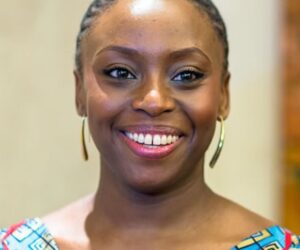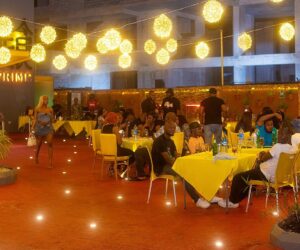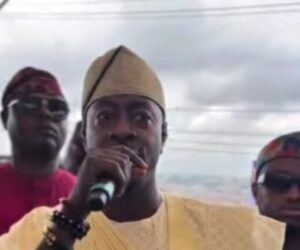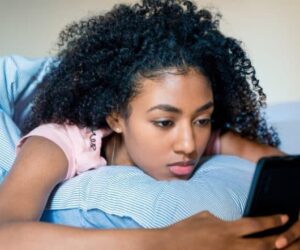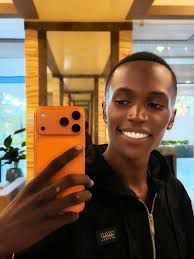
If you’ve been online lately, you’ve probably seen the drama surrounding influencer BLord’s “iPhone 17 Pro Max.” Nigerians found out that the so-called new iPhone sold by the tech entrepreneur was actually a modified iPhone XR, and that discovery set social media on fire.
What began as outrage quickly turned into full-blown debate, not just about fake iPhones in Nigeria, but about how deeply the iPhone has become tied to social status in Nigerian culture. Some people mocked the buyers for being “scammed by packaging,” while others, including actress Nkechi Blessing, defended their purchases, insisting their versions were “original.”
But beneath the noise lies a deeper truth: in Nigeria, the iPhone is more than a phone. It’s now a cultural badge, a sign that you’ve arrived, belong, or at least want to be seen as part of a certain class.
The iPhone 17 Pro drama and what it revealed
The BLord saga exposed something we’ve always known but rarely admitted: Nigerians are emotionally attached to the idea of owning an iPhone.
Even when it turned out that many “iPhone 17 Pro Max” units were refurbished or upgraded XR models, people still defended their purchases because the brand name carried more weight than the features.
As actress Nkechi Blessing puts her iPhone 17 Pro max in water to prove that hers is not fake.
“I no go let una disrespect me”
Nkechi blessing dropped her new iPhone 17 she bought for 3 million Naira inside water to let people know it’s not XR she bought 😭💔😂 pic.twitter.com/zsB5NutiOZ
— Oyindamola🙄 (@dammiedammie35) October 14, 2025
That single comment summed up how social identity now depends on the originality of the iphone you hold.
This mindset explains why the market for UK-used iPhones and refurbished Apple devices thrives in Nigeria. Many would rather buy a used or locked iPhone than a brand-new Android phone with better specs, simply because the Apple logo signals status.
Why the iPhone became Nigeria’s ultimate status symbol
In a country where image carries huge weight, the iPhone in Nigeria has evolved into a social marker. It’s no longer just a device for communication or creativity, it’s a statement of class, success, and access.
From Lagos parties to Twitter spaces, an iPhone represents sophistication. The idea that “you’re using an iPhone” often earns you more respect, even if your bank account tells a different story.
Influencer culture amplified this thinking. From skit makers to Instagram models, nearly everyone flaunts their iPhones in mirror selfies or uses them to record high-quality Reels and TikToks. It’s now part of the Nigerian influencer starter pack, ring light, aesthetic background, and an iPhone camera.
Owning an iPhone signals that you’re “in the circle.” It means you belong to the online class that defines style and trend.
The divide: iPhone users vs. Android users
The iPhone vs Android debate has been going on for decades. Many Nigerians now associate Android with struggle and iPhone with success.
Comments like “She is still using Android?” reflect how deeply classism runs through tech culture. Some people even choose iPhones they can barely afford because not owning one feels socially limiting.
Even the number of the camera of your iPhone matters; one, two or three, models often symbolise taste, while cracked screens or older models attract ridicule.
The business behind the obsession
The demand for iPhones has created an entire ecosystem. Vendors in Computer Village, Ikeja, and other major markets constantly import UK-used iPhones and refurbished Apple products because the appetite never slows down.
One Lagos phone vendor explained:
“When we say UK-used, it just means a phone that was used abroad and shipped down here. Nigerians love them because they still look neat and perform almost like new ones but cost far less.”
But this obsession for iPhones also fuels shady practices; locked iPhones, fake upgrades, and blacklisted devices. Some sellers modify older models to look like the latest release, exactly like what happened with the BLord iPhone 17 Pro Max.
The pressure to belong
This craze reflects more than consumer behaviour, it shows how Nigerians tie self-worth to appearance. Many people would rather buy a “clean” iPhone 12 with instalment payments than use a more affordable phone without brand prestige.
iClass: Deconstructing the Nigerian obsession with the iPhone https://t.co/YY7JKbmIP3
— P0liticalbaby 🇵🇸🇨🇩 (@mao_0k) October 9, 2025
Some even go as far as taking loans or selling personal belongings just to post “Sent from my iPhone” in their email signature or tweet from the latest Apple device.
It’s not about tech specs anymore. It’s about validation.
Social media has intensified this pressure. A person with an iPhone 15 is perceived as more successful or “in touch” than someone using an Android device, even though both can do the same things. The iPhone has become a symbolic currency, a way to show progress, class, and relevance.
Beyond the screen: what this says about Nigerian culture
The BLord incident was more than a scam story, it was a mirror reflecting our priorities. Nigerians often chase the look of success, even if the foundation is shaky.
Owning the latest iPhone feels like a social upgrade, but it also exposes the deep class divide and material pressure that shape everyday life.
In truth, most people don’t buy iPhones because they need them, they buy them because of how owning one makes them feel and how it changes how others treat them.
Even celebrities like Nkechi Blessing defending their “original” iPhones show how the iPhone has become tied to ego and social validation. To admit it’s fake would mean admitting to lower status, and in Nigerian pop culture, that’s a no-go area.
RELATED: Do You Really Need the iPhone 17?
It’s not just a phone anymore
The BLord “iPhone 17 Pro Max” scandal didn’t just expose fake phones, it exposed our collective obsession with image. In Nigeria today, an iPhone is not a gadget; it’s a symbol of identity, class, and belonging.
It shapes how people are perceived, who they attract, and even how confident they feel. And that’s why, despite all the drama, people will keep chasing the next model.



